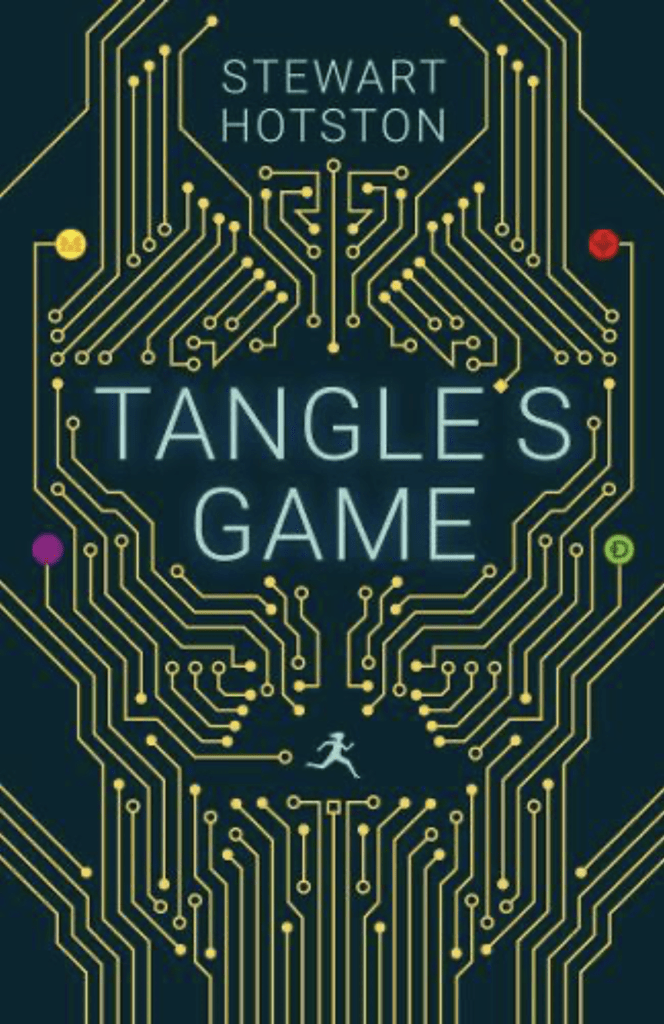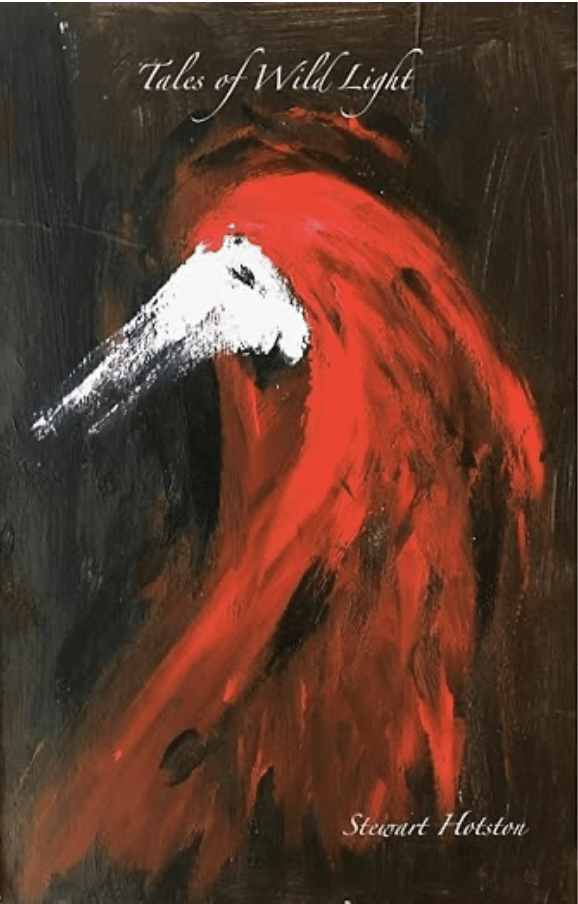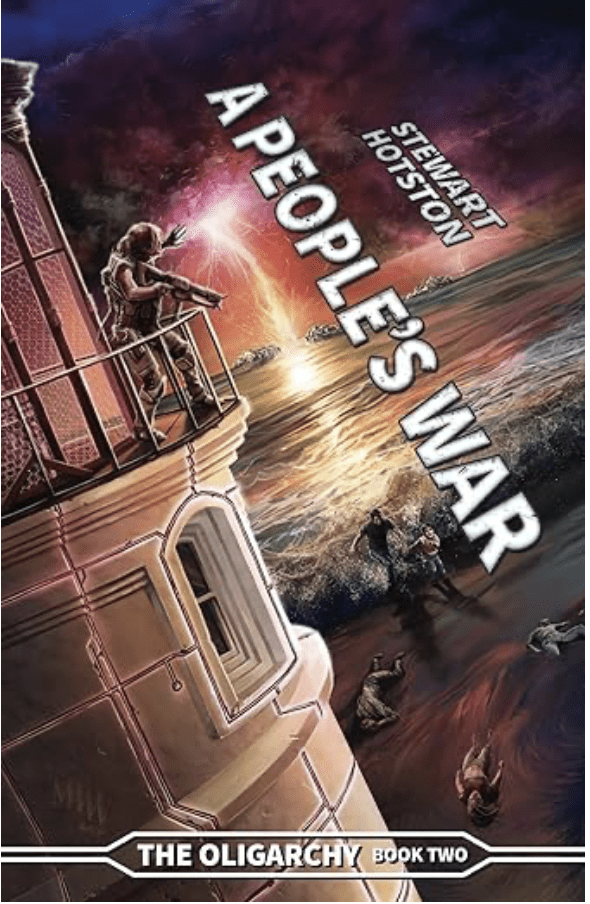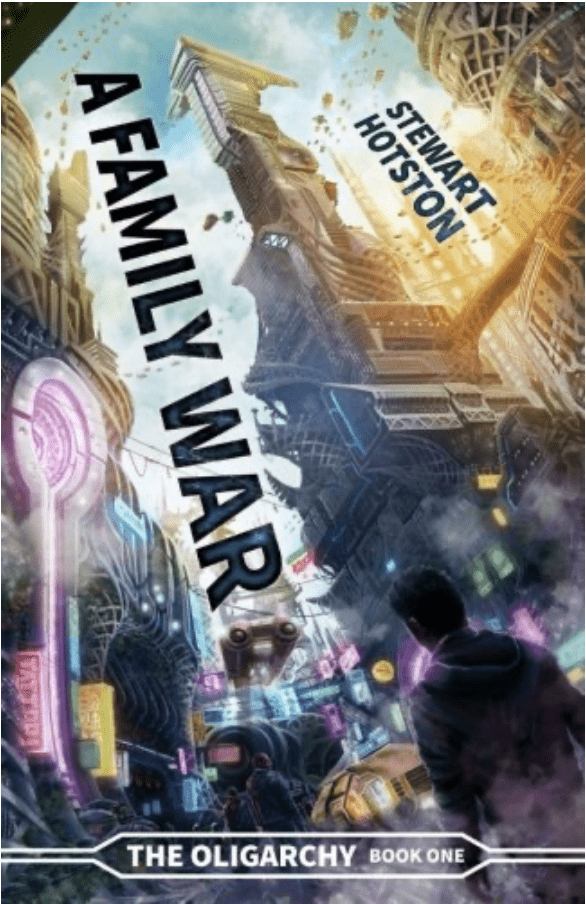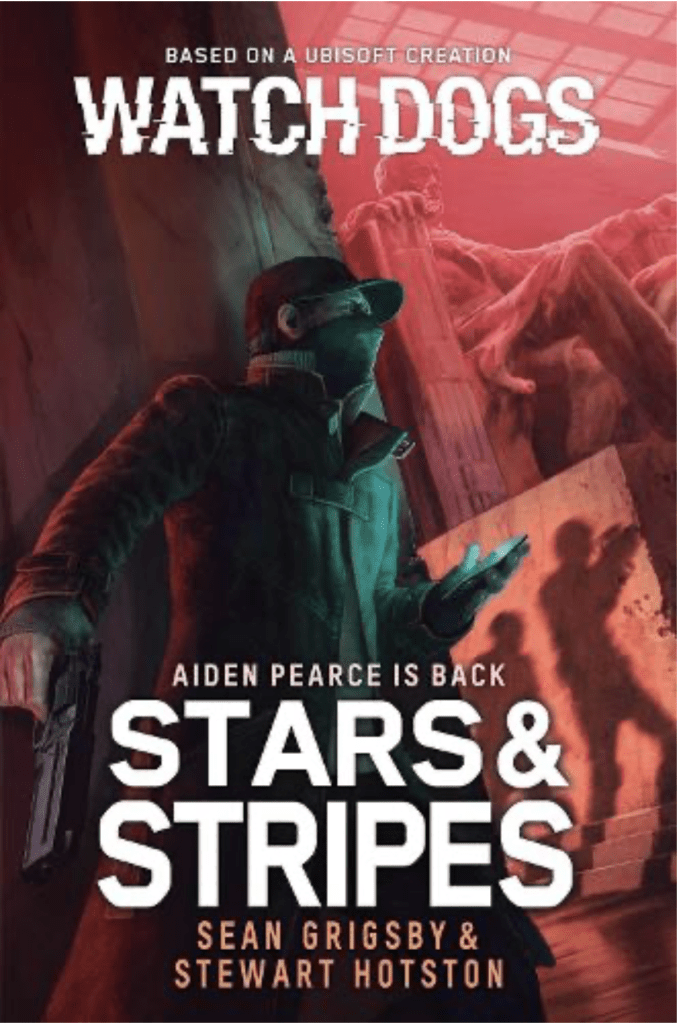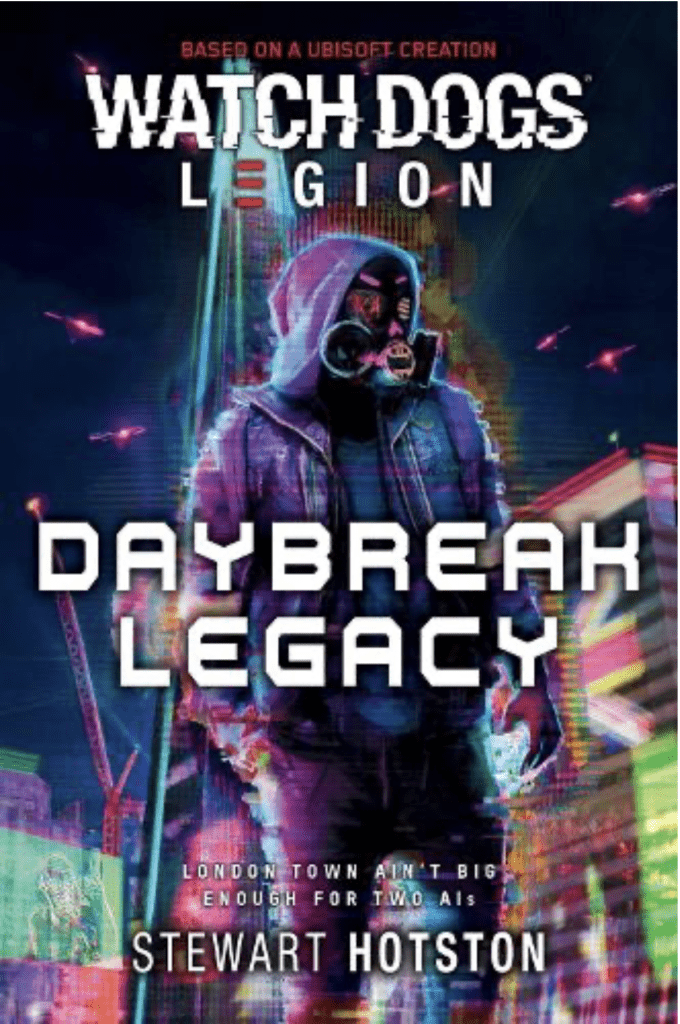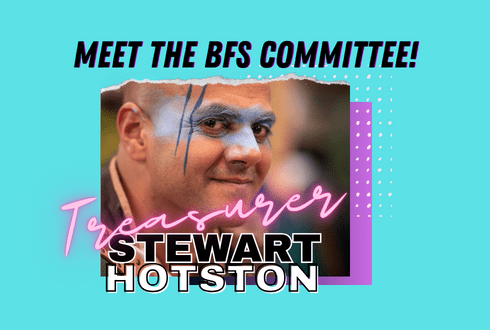We’d love to shine a light on the volunteers who help keep the British Fantasy Society running—this month, it’s the money man himself, Treasurer Stewart Hotston.
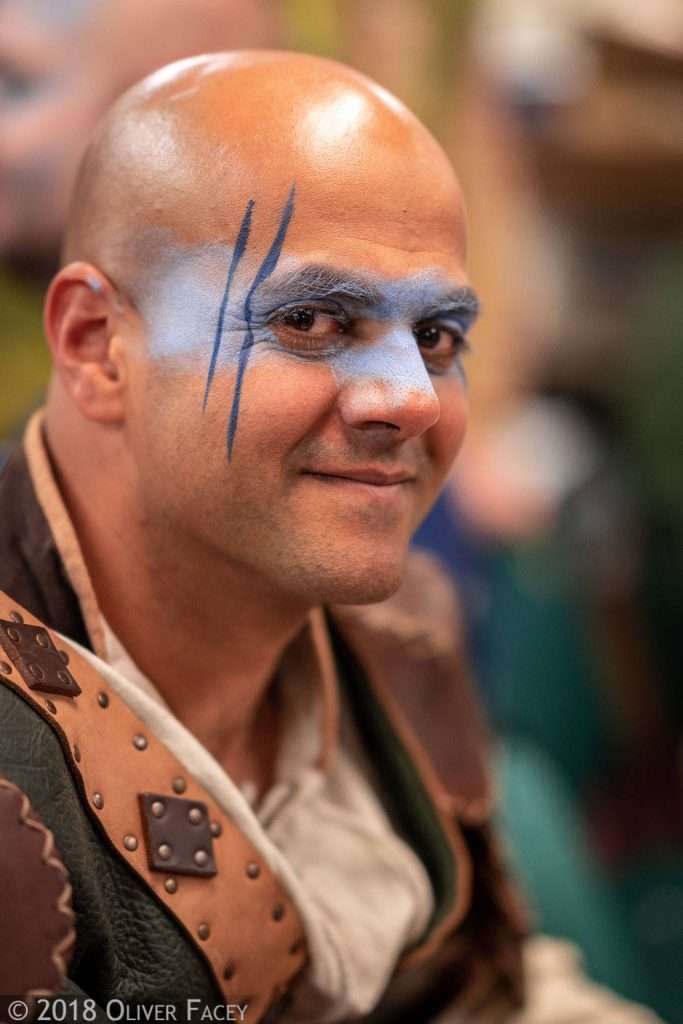
Name, including preferred pronouns
Stew Hotston (he/him)
Which region are you based in?
South East
Your role on the BFS committee is:
Treasurer
If you write, which genre:Â
Sci-fiÂ
Fantasy
Horror
Weird
Non-fiction/cultural criticism
Are you drawn to any specific sub-genres?Â
I love writing about despair turning to hope, about dreams surviving the odds, and about how we build better worlds.
Your work with the BFS
Why did you join the BFS committee?
Haha. I was asked. No, seriously, I love supporting the people around me and this seemed like a great chance to help build our community for the future.
Tell us more about your role – what do you do?
My main role is stuff behind the scenes – making sure people get paid, that we have money in the accounts, and that we’ve filed our accounts and paid the tax department. I’m also keen to see us use the money we have to serve the community – from making sure the committee has the resources it needs to ensuring our events and our members have a chance to promote the widest possible visibility for the stories we all love so much.
What does this mean in practical terms for members?
Two things – if we’re paying them, I’m the person who does that and to whom you’ll be sending your bills. It also means that if you have ideas for initiatives, bursaries, funding and support I’ll be part of that conversation at some point.
Why should others get more involved with the BFS?
The BFS is a central place for conversations about SFF in the UK. It’s a wide open society dedicated to making sure the things we want to nerd about have a place for that to happen. If you want to learn about creating, want to meet other creatives, get the gossip and meet people like you then the BFS is a brilliant home for you.
As importantly, there’s no hierarchy here – we are a community where we support one another and all that happens only does so because ordinary people like us said we’d like to do something and others supported us to make it so.
Your influences
Tell us about the book/film/thing that got you into SFFH: What was it? How old were you? What impact did it have on you?
It’s pretty boring to be honest. I saw Star Wars and Clash of the Titans as a tiny kid and then watched Raiders, ET and Jaws a little later. As soon as I could read I was into the Hobbit and never looked back. I read extremely broadly but I always return to the ideas and radical worlds that SF and Fantasy make possible.

How does that early influence show up in your work now?
Honestly I have no idea. I look at my work and see the impact of my late teens and twenties. Of the Matrix, of 2001, of Ghostbusters and Primer, of authors and thinkers like René Girard, Mikhail Bulgakov, of people like Mary Douglas and Paul Tillich, of Richard Feynman and Paul Feyerabend and they are tangled in my soul in a way I don’t think I can ever unravel. In the end I’m passionate about the idea of justice and freedom – but the kind of freedom that allows people to be themselves in their communities, not the crass libertarian kind that sees other people as, at best, an inconvenience. I’m more Simone De Beauvoir than Ayn Rand.
Where do you draw your creative inspiration from?
Science and philosophy. Economics and Politics. Colonialism and the struggle for survival when the world sees you are less than human. That may sound high falutin and distant but honestly the most interesting examples of that? In families and in small stories of the every day. I don’t mind epic but I prefer the intimacy of seeing and telling of the people living in the margins while the world changes, indifferent to their plight.
Who do you look to as a genre hero? Why?
Oh, gosh. Kelly Link who carves her own path. Peter Watts who wrote so profoundly about consciousness and intelligence. I’ll also read everything and anything by Haruki Murakami. Lastly, David Moore, editor at Solaris, who’s ploughed a path that’s quietly revolutionary and isn’t sung about enough for his support of marginalised voices.
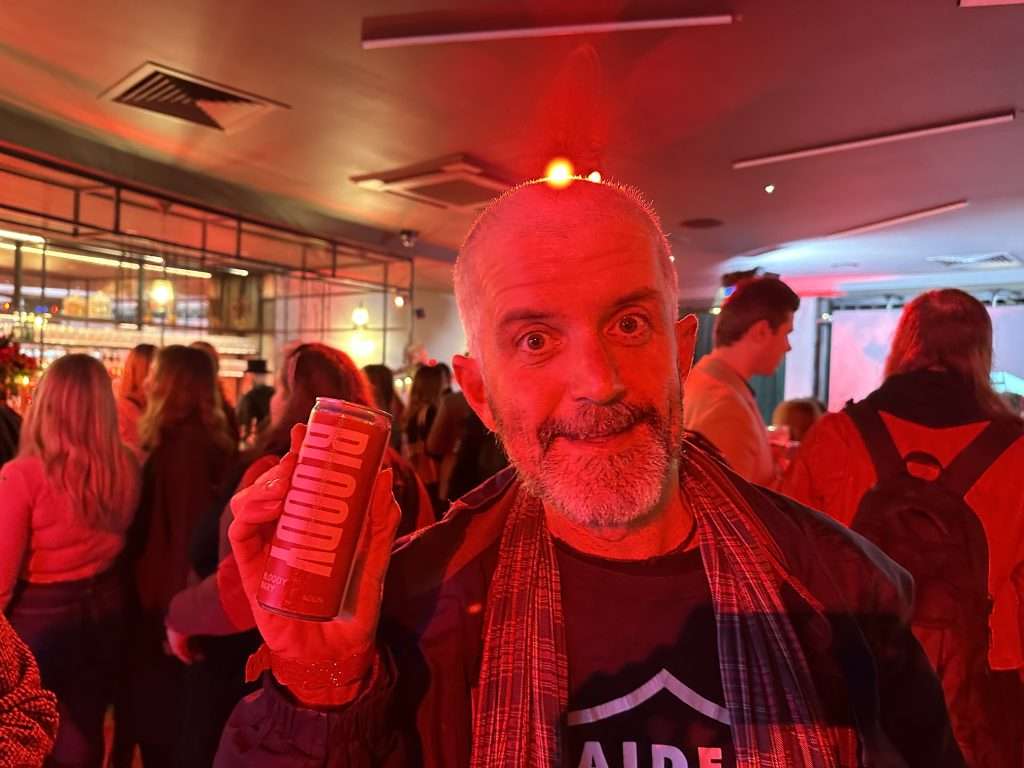
Your work
You’re stuck in an elevator for 60 seconds with that hero, and they want you to describe your work. Give us the pitch.
It’s about hope and struggle, about life and death, and about how love grounds us all. It’s about taking ideas of power and turning them upside down, about drowning empires and executing kings and telling stories where there is no fucking orphan who’s really a king or some special person waiting to save us all. My stories are about what happens after the end, about how we build together, as a community, about how no single person gets to decide for the rest of us.
And they always feature dreams and my fantasy always features science and my science fiction always features the numinous because there is nothing without something more.
What are you working on right now?
Oh where to start?! I have a specific book called Angel of the East which I’m editing. I love it a little bit – basically one night someone falls out of the sky in East Anglia and turns the lives of everyone they meet upside down.
The other is something new, a scifi piece called Project Hanuman (it’s a project name, not the title!) about the collapse of a utopian galactic society and how from its ashes something new comes. It follows an Interlocutor, a translator between this uptopia and outsiders and how they navigate the end of everything they’ve known at the hands of an unknown enemy to try and save something of what’s being lost and make a place where it can take root once again.
Thinking about all of your stories/work you’ve done, which one sticks out most in your mind? Why?
I have a story out on sub (and hoping for an offer soon following some great feedback) called The Sung Boundary. It’s about colonialism and how we make a new world when it’s over. About how we reclaim our language and our ideas and disentangle ourselves from the nonsense of other people telling us what and who we’re allowed to be.
It follows a middle aged mum who’s had enough of your shit.
If you’re a creator, where and when do you create?
On my commute, in the spaces between my other work. When the muse comes but, most of all, every day in a small way no matter what else happens because a thousand small steps complete the longest journey.
What’s the best advice you’ve received about creativity?
We all have our process and no one else can tell you how it ‘must’ be done. Having said that, I think the most important thing I’ve learned? When to move on and call something done.
The quickfire round
Sci-fi, fantasy or horror?
SF
Quiet or loud?
LOUD
Dark or light?
DARK
Strict lines or genre blend?
Blend all the way
Awards or bestseller?
Yes
Fiction or non-fiction?
Fiction
Poetry or prose?
Prose
Plotter or pantser?
Depends
Reading or listening?
Reading books, listening to people
Notebook or computer?
Computer
Favourite SFFH book of all time?
In terms of core genre it’s definitely changed over time. At various points it’s been Blindsight, Solaris, Neuromancer. At the moment I can’t stop talking about The Spear Cuts Through Water. The two slipstream novels that have stuck with me and remain my favourite reads of all time though are A Wild Sheep Chase by Haruki Murakami and The Master and Margarita by Mikhail Bulgakov (pictured right, on Stew’s bookshelf).
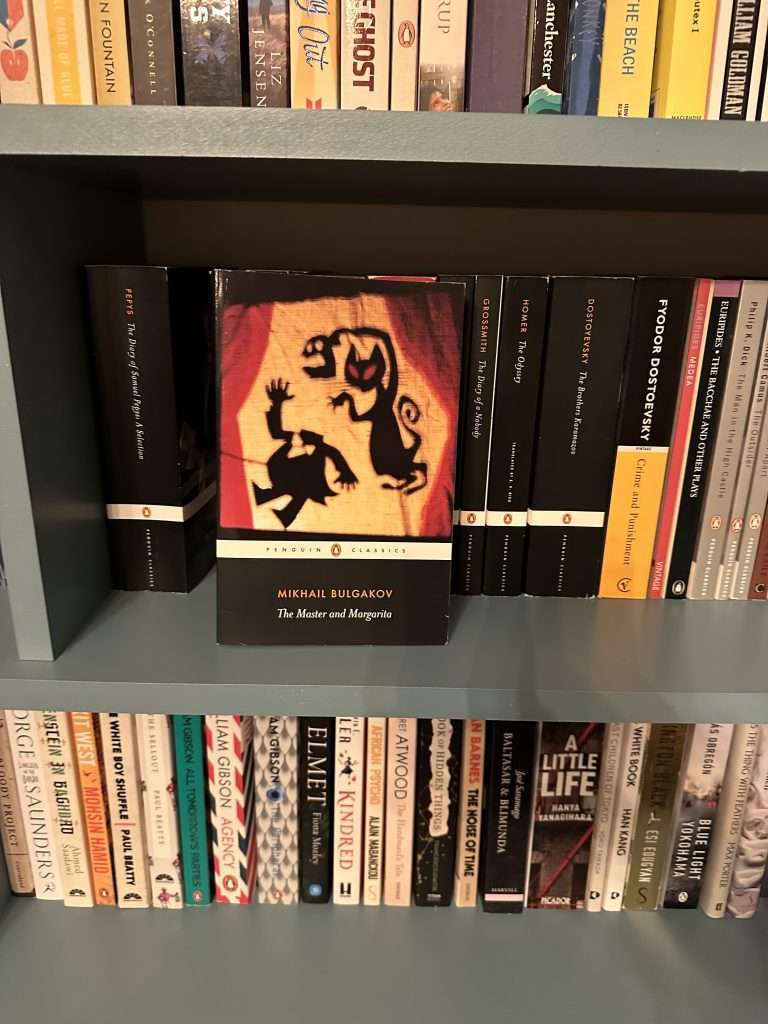
Last book you read?
Ascension by Nicolas Binge
Any SFFH author on auto-buy?
Simon Jimenz, Anne Leckie, RJ Barker, Yooh Ha Lee, and Ruth Ozeki
Favourite podcast?
If Books Could Kill
The home stretch
What’s the best thing about being an SFFH writer?
Telling stories that I want to read and playing with ideas about how the world could be.
Time to plug your stuff! Where can we find you and your work? What have you got coming up? Consider this your advertising space.
I’m currently with a few books on submission – expecting news soon but nothing particularly live right now.
I’d say look out for two: The Wild Dark, a story where the sun dies at the beginning, and The Sung Boundary, about a world where music makes reality and jazz is illegal.
(A selection of Stew’s titles are pictured below; details of these and more are available on his website.)
